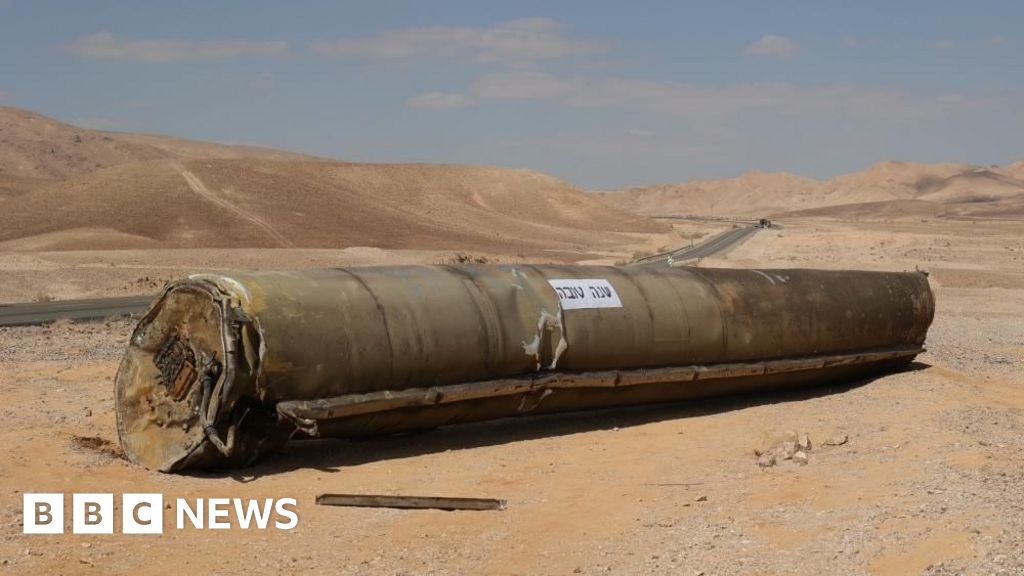Headline: Leaked U.S. Intelligence Reveals Israeli Plans Against Iran
Unfolding Tensions: U.S. Intelligence Documents Leak on Israel’s Military Preparedness
In a rapidly evolving geopolitical landscape, U.S. investigators are delving into the origins of two highly classified intelligence documents that surfaced online, raising alarms about national security and international relations. The leak occurred on October 27, when documents detailing U.S. assessments of Israel’s military intentions towards Iran were disseminated via the messaging app Telegram. This stunning revelation follows Iran’s airing of grievances over Israel’s recent actions, notably a mass missile attack that struck southern Israel on October 1.
The Context of the Leak
The documents bear the heading "Top Secret" and include credible language consistent with other classified materials. They feature critical acronyms like "FGI" for Foreign Government Intelligence and "TK," which denotes satellite-based Signals Intelligence (SIGINT) and Imagery Intelligence (IMINT). The nature of these insights suggests a high level of scrutiny on Israel’s preparations for retaliation against Iran following a series of hostilities.
National Security Council spokesman John Kirby recently expressed that President Joe Biden is "deeply concerned" about the gravity of this leak. While officials are investigating whether this incident stems from a security breach or an internal leak, the implications are profound and far-reaching.
What the Documents Reveal
-
Military Capabilities: Analysts indicate that the documents included projections regarding two advanced Air Launched Ballistic Missile (ABLM) systems: the Israeli-developed Rocks and Golden Horizon. While the Rocks system employs long-range capabilities suitable for targeting various installations, Golden Horizon—believed to correspond with the Blue Sparrow missile—has an extensive reach approaching 2,000 km.
-
Israeli Strategy: The leaked intelligence details how launching missiles from long distances enables the Israeli Air Force to mitigate the risks associated with flying over neighboring territories like Jordan. The documents analyze Israeli preparations to expand upon previous operations, such as the focused strike on an Iranian radar site in April.
- Nuclear Deterrence: Notably, the documents mention no activation of Israel’s nuclear deterrent. Washington has maintained a stance of silence regarding Israel’s nuclear ambitions, which often leads to uncomfortable situations for U.S. officials.
The Backdrop of Tensions
Israel’s alleged retaliation plans come in response to Iran’s missile assault that resulted from the assassination of Hezbollah leader Hassan Nasrallah, a controversial maneuver executed by Israel just days prior. For weeks, Israeli officials have publicly affirmed their stance to retaliate decisively against Iran—a commitment underscored by the recent missile attacks.
Military analysts caution, however, that absent from the leaked documents are explicit details about targeted locations in Iran and a timeline for action. Given the historic caution exercised by both nations, timing remains uncertain. Moreover, U.S. officials have indicated their opposition to strikes against Iran’s nuclear facilities or oil installations, thereby limiting the scope of potential targets.
Potential Motives Behind the Leak
Experts interrogate whether this leak could serve as a tactic to disrupt Israel’s military strategies. Iran, equipped with a sophisticated cyber warfare apparatus, is revealed to be a plausible suspect in this scenario. John Kirby’s comments suggest an ongoing evaluation of the incident as either a malicious hack or a deliberate leak from inside the intelligence community.
Strategic Implications for the Region
The leaking of these documents underscores the complexity of the U.S.-Israel alliance, particularly when it involves military planning against adversaries like Iran. If genuine, this intelligence illustrates the high stakes in play, reflecting both the U.S. commitment to Israel’s security and its imperative to stay informed on the actions and strategies of its close ally.
As tensions escalate, it seems increasingly likely that any Israeli military engagement would result in significant repercussions, reigniting a cycle of conflict in a region already fraught with instability.
Engage with Us
This unfolding situation is a critical juncture in Middle Eastern diplomacy and military strategy. What are your thoughts on the implications of this leak? What actions should be taken to address these volatile tensions? Share your insights below in the comments, and stay connected for more updates on this evolving story.
For further information and analysis, refer to our previous articles on Middle Eastern Military Strategies and the U.S.-Israel Relations Framework.
Sources: U.S. National Geospatial-Intelligence Agency, White House National Security Council, military analysts, and leading global intelligence sources.
Note: The site may contain further articles pertaining to similar issues; please check back for further updates.


